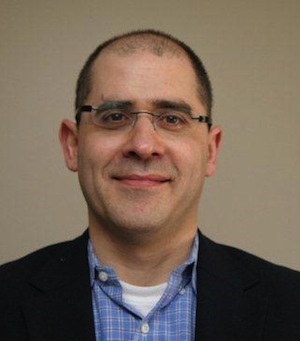Visiting Assistant Professor of Law Isaac Kfir on the Syrian Refugee Crisis
 Isaac Kfir, a visiting assistant professor of law at the College of Law, a research associate with the Institute for National Security and Counterterrorism and a co-director of the Mapping Global Insecurities project at the Moynihan Institute of Global Affairs at the Maxwell School, explains some of the complexities facing the migrants and the European states.
Isaac Kfir, a visiting assistant professor of law at the College of Law, a research associate with the Institute for National Security and Counterterrorism and a co-director of the Mapping Global Insecurities project at the Moynihan Institute of Global Affairs at the Maxwell School, explains some of the complexities facing the migrants and the European states.
“First, at its source, there is a need to address the reason why people are fleeing Syria, Central Africa and Iraq: pervasive insecurity. We need to think what would we do, if we faced marauding gangs bent on enslaving, sexually abusing and killing all those who face them. The people who are fleeing are doing so because they have faced such horror for over a decade.
Second, there has to be a legal and policy change that would allow states to take more asylum seekers. Declaring a willingness to take people in is only the start; provisions have to be made for accommodation, food, health and security. We live at a time of great insecurity and states, one could argue justly, must be fearful of allowing jihadi infiltrators in.
Also something has to change regarding the procedures of assessing asylum applications; for example, it can take a few weeks to get a refugee application done in Holland but several months in Germany or the United Kingdom. And until the person receives refugee status, they cannot always get a place to sleep or food.”
Read more from Professor Kfir’s Q&A with Syracuse University News here.
Professor Kfir is available for media interviews. Please contact Rob Conrad, director of communications and media relations at Syracuse Law, at (315) 443-9536 or rtconrad@law.syr.edu.
